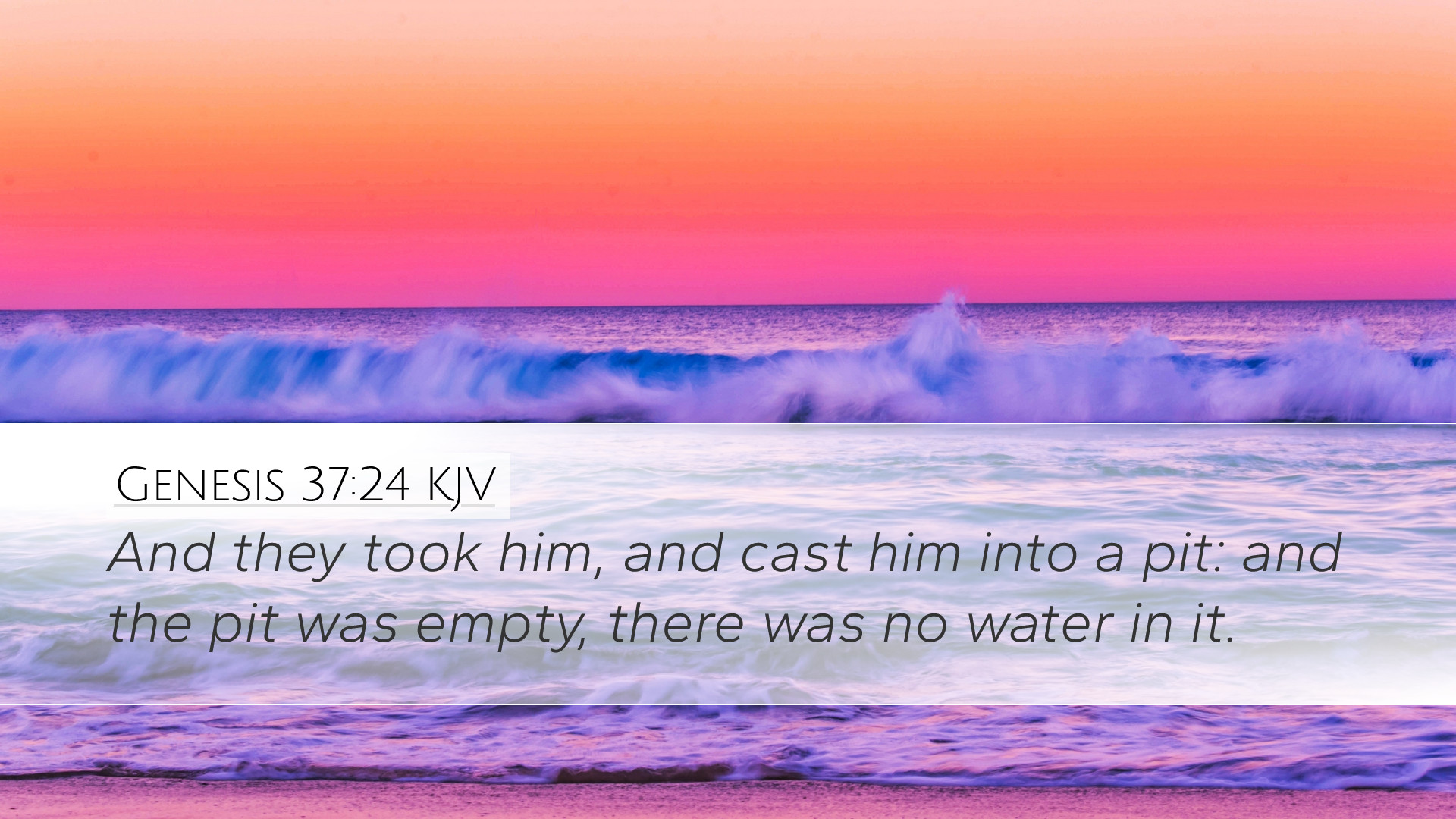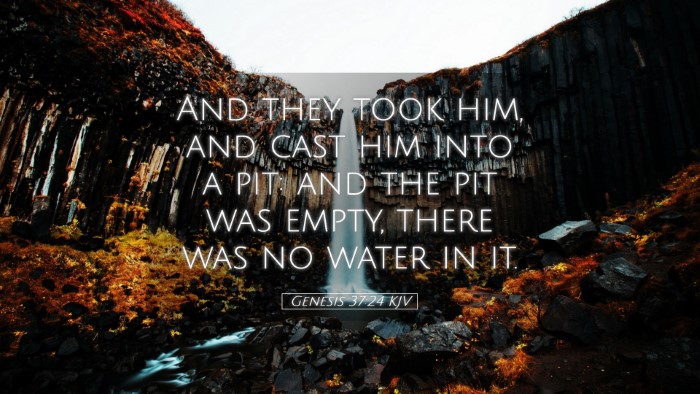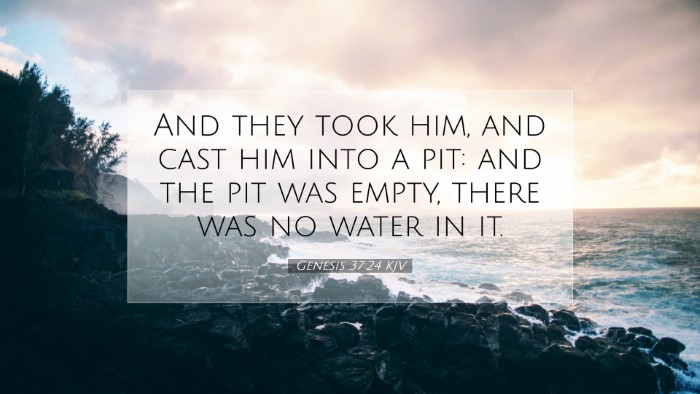Commentary on Genesis 37:24
Verse Context: Genesis 37:24 states, "And they took him, and cast him into a pit: and the pit was empty, there was no water in it." This verse captures a pivotal moment in the narrative of Joseph, serving as a lens through which we can explore themes of betrayal, providence, and the unfolding of divine purpose.
Interpretation and Analysis
Genesis chapter 37 presents a grim scenario in which Joseph, the favored son of Jacob, is betrayed by his own brothers. This betrayal sets the stage for a series of events that lead ultimately to his rise in Egypt and the preservation of his family. Below we consider various insights from established biblical commentators.
Matthew Henry's Commentary
According to Matthew Henry, this passage illustrates the cruelty of Joseph's brothers. The act of casting him into a pit symbolizes their complete disregard for familial bonds and humanity. Henry notes:
- The brothers' actions were driven by jealousy and hatred, which often lead individuals to commit unthinkable acts against those they are envious of.
- The pit represents a place of abandonment and despair, emblematic of the depths to which hatred can drive a person.
- This incident foreshadows Joseph's eventual trials and triumphs, highlighting that even when circumstances appear dire, God is at work for a greater good.
Albert Barnes' Notes on the Bible
Albert Barnes offers a detailed analysis emphasizing the geographical and historical elements surrounding the pit:
- The pit was likely a cistern, a common structure in that arid region, which also lacks water at times, symbolizing desolation.
- Barnes points out that the absence of water in the pit suggests God’s providential hand in protecting Joseph's life, preventing the brothers from killing him outright.
- The act of throwing Joseph into the pit illustrates not merely a physical act of violence but signifies a deep moral and spiritual conflict among the brothers.
Adam Clarke's Bible Commentary
Adam Clarke expands on the emotional and spiritual implications of the narrative:
- Clarke notes the psychological tension Joseph must have felt at that moment—betrayed by those he loved and trusted.
- He highlights the theological perspective that God allows such suffering as part of His sovereign plan, which ultimately conforms to God’s gracious purpose for Joseph and Israel.
- The pit serves as a transitional phase for Joseph—moving from a position of favoritism to a place where God's deeper plans begin to unfold.
Theological Insights
This verse invites deeper theological reflection concerning God's sovereignty amidst human betrayal:
- Betrayal and Divine Purpose: The painful experience of betrayal can be a bitter pill; however, scripture assures us that God's purpose often emerges from the most severe trials.
- Providence in Despair: The empty pit serves as a metaphor for God's ability to use barren situations to create pathways for hope and renewal.
- Faithfulness in Adversity: Joseph's narrative encourages believers to remain steadfast through adversity, knowing God’s promises can lead to eventual restoration.
Conclusion
In Genesis 37:24, we witness a profound moment that encapsulates the extremes of human emotions—jealousy, betrayal, and the scenes of suffering that often accompany them. Yet, in the depths of this pit, as it were, is the promise of God's redemptive work. The commentators remind us that no matter how low we may appear to fall, God uses every situation for His glory and our ultimate benefit. Understanding these dynamics enriches our theological discourse and encourages us to trust in divine providence throughout life’s trials.


